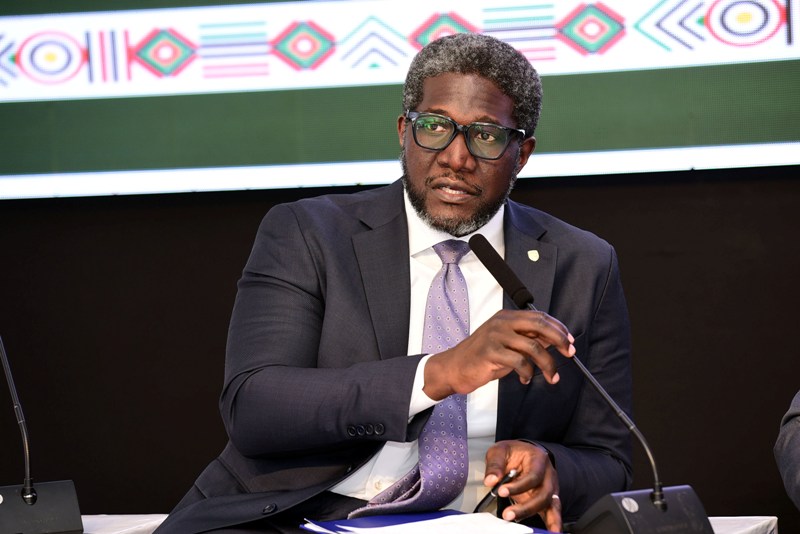Stanbic Bank’s Samuel Mwogeza urges strategic investment to defuse youth unemployment
Speaking to a packed audience filled with young professionals and Makerere alumni, Mwogeza offered a frank and data-driven reflection on the youth unemployment crisis—but quickly pivoted to highlight the untapped opportunity hidden within.

The pressing issue of Africa’s future, particularly the continent’s burgeoning youth population, took center stage on Tuesday at the Investor Roundtable Summit in Kampala.
Hosted by the Makerere University Alumna Association, the event saw leaders from academia, business, and finance converge, with Stanbic Bank Uganda’s Executive Director, Samuel Mwogeza, delivering a stark warning about youth unemployment while simultaneously outlining a strategic path forward, including a significant financial commitment.
Held under the theme “Exploring Opportunities for Entrepreneurship, Innovation and Value Creation for Accelerated Socio-Economic Integration and Development of Sub-Saharan Africa,” the summit drew a diverse cross-section of alumni, investors, scholars, entrepreneurs, and policymakers eager to chart a course for sustainable growth.
Among the day’s highlights was a powerful contribution from Samuel Mwogeza, Executive Director and Head of Personal & Private Banking at Stanbic Bank Uganda, who served as a panelist alongside other distinguished thought leaders. Addressing a packed audience, Mwogeza offered a frank, data-driven assessment of the youth unemployment crisis.
“Uganda has one of the youngest populations in the world—with over 77% under the age of 25,” he stated. “But what should be a demographic dividend is becoming a ticking time bomb. Over 4 million young people are not in school, not working, and not in training. We cannot afford to waste this talent.”
Mwogeza framed the current moment as a defining opportunity to reimagine how African economies can create sustainable value, emphasizing intentional investment in entrepreneurship, innovation, and inclusive financing.
Drawing from Stanbic Bank Uganda’s own initiatives, he highlighted concrete examples of how the private sector can serve as a catalyst for change.
He cited the Stanbic National Schools’ Championship, which equips thousands of high school students with entrepreneurial skills, aimed at shifting mindsets from job-seeking to job-creating.
Additionally, the Stanbic Business Incubator provides enterprise development support to youth- and women-led small businesses in critical sectors like agriculture, oil & gas, and services.
Addressing access to finance, a major barrier for many entrepreneurs, Mwogeza detailed Stanbic’s efforts to bridge this gap. He mentioned “Stanbic for Her,” an initiative that has supported over 30,000 women entrepreneurs with access to affordable financial solutions, and the Stanbic SACCO Programme, which provides low-interest financing (10–12.5%) to smallholder farmers to scale up production and increase household incomes.
“Our current investment in local enterprises stands at over UGX 960 billion,” Mwogeza shared, before making a significant pledge. In a strong concluding statement, he reaffirmed the bank’s commitment to channel up to UGX 1 trillion by 2028 toward enterprises led by Women, Youth, and Farmers.
“This is how we live our purpose—Uganda is our home; we drive her growth. It’s not just a slogan. It’s our strategy,” he asserted.
The panel discussion, which transitioned into a lively plenary session, saw audience members—including recent graduates and seasoned alumni—engage panelists on practical solutions for scaling innovation and entrepreneurship.
The event served as a powerful reminder that economic transformation is not only possible but urgent, demanding concerted collaboration between the public and private sectors. As Uganda and Sub-Saharan Africa chart a path toward a more integrated and productive future, voices and initiatives like those presented by Mwogeza are instrumental in shaping a blueprint for growth, one bold investment at a time.







